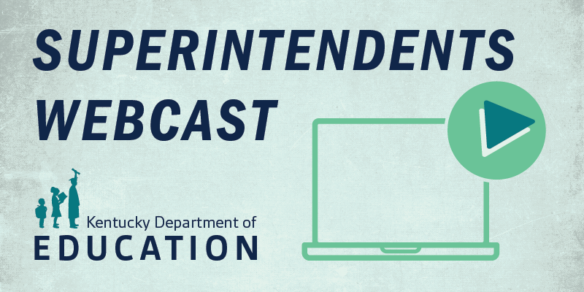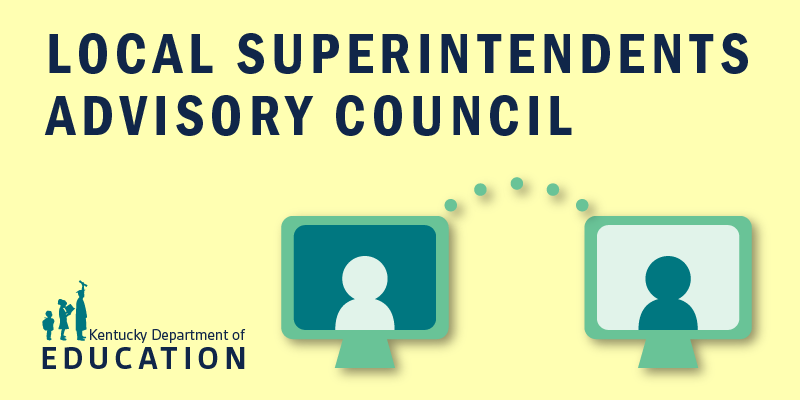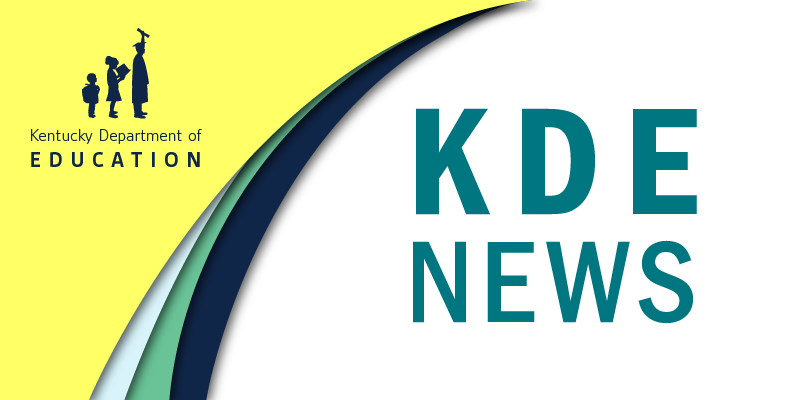 (FRANKFORT, KY) – Representatives with the Kentucky Department of Education’s (KDE’s) Office of Teaching and Learning presented during the KDE Superintendents Webcast on March 11, including an update on numeracy initiatives.
(FRANKFORT, KY) – Representatives with the Kentucky Department of Education’s (KDE’s) Office of Teaching and Learning presented during the KDE Superintendents Webcast on March 11, including an update on numeracy initiatives.
Jennifer Fraley, director of mathematics education at KDE, provided information on the implementation of the Kentucky Numeracy Counts Act, including the development of professional learning academies.
The PIMSER Numeracy Counts Administrator Academy will train up to 250 administrators during the year-long program, which starts in June. On the educator side, the Kentucky Center for Mathematics’ K-5 Numeracy Counts Academy will train up to 1,000 K-5 math teachers during its two-year program, which starts in July. Applications for both will become available on March 17.
Fraley said KDE is also working with AdvanceKentucky Access to Algebra to provide professional development and financial incentives for both teacher growth and student academic success. The program is growing for the 2025-2026 school year with 19 new sites, bringing the total number of schools to 28.
KDE is also working with EPIC Numeracy Alliance to provide professional development for 200 teachers across the Commonwealth in grades 3-8.
More information can be found on KDE’s Kentucky Numeracy Counts webpage and KDE’s Kentucky Numeracy Counts Act implementation timeline guidance document.
Approved K-12 High-Quality Instructional Resources for Reading and Writing and Mathematics
KDE has released approved lists of K-12 high-quality instructional resources (HQIRs) for reading and writing and mathematics, focusing on core comprehensive resources.
A core comprehensive instructional resource is one that serves as the primary means of instruction in a content area for a grade level or course. Micki Ray Marinelli, KDE’s chief academic officer, went over the lists, which are designed to assist superintendents in navigating the complex marketplace of educational resources.
To aid in the evaluation and selection process, KDE has released the Model Curriculum Framework’s Curriculum Development Process and instructional resource consumer guides for reading and writing and mathematics. The guidance recommends using EdReports.org, an independent nonprofit that provides free reviews of instructional materials that draw upon expert educators, as a starting point for local review teams to research available evidence-based materials.
While all materials on the approved lists meet the KDE standards for HQIRs and have been informed by feedback from the Quality Curriculum Taskforce, districts are encouraged to conduct thorough local reviews to ensure that selected materials align with their specific needs and the local instructional vision. Picking HQIRs that are not on the approved lists are still protected and allowable per KRS 156.445.
More information about the approved reading/writing and mathematics lists can be found on KDE’s Instructional Resources webpage.
In other business:
- Superintendents heard an update on the legislative session from Brian Perry, KDE director of government relations.




Leave A Comment